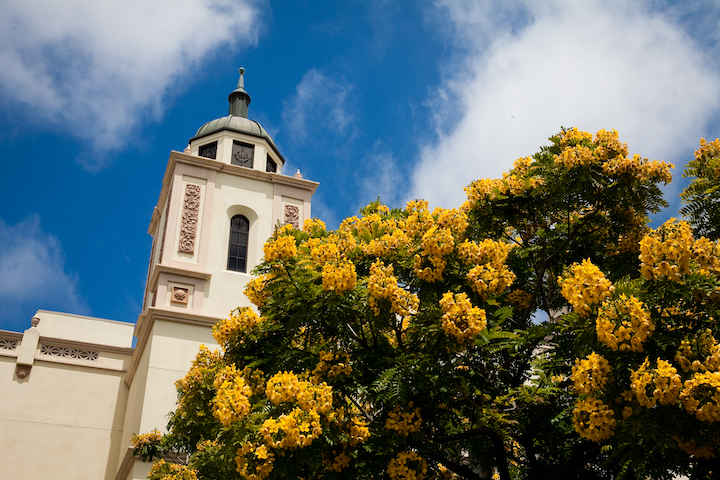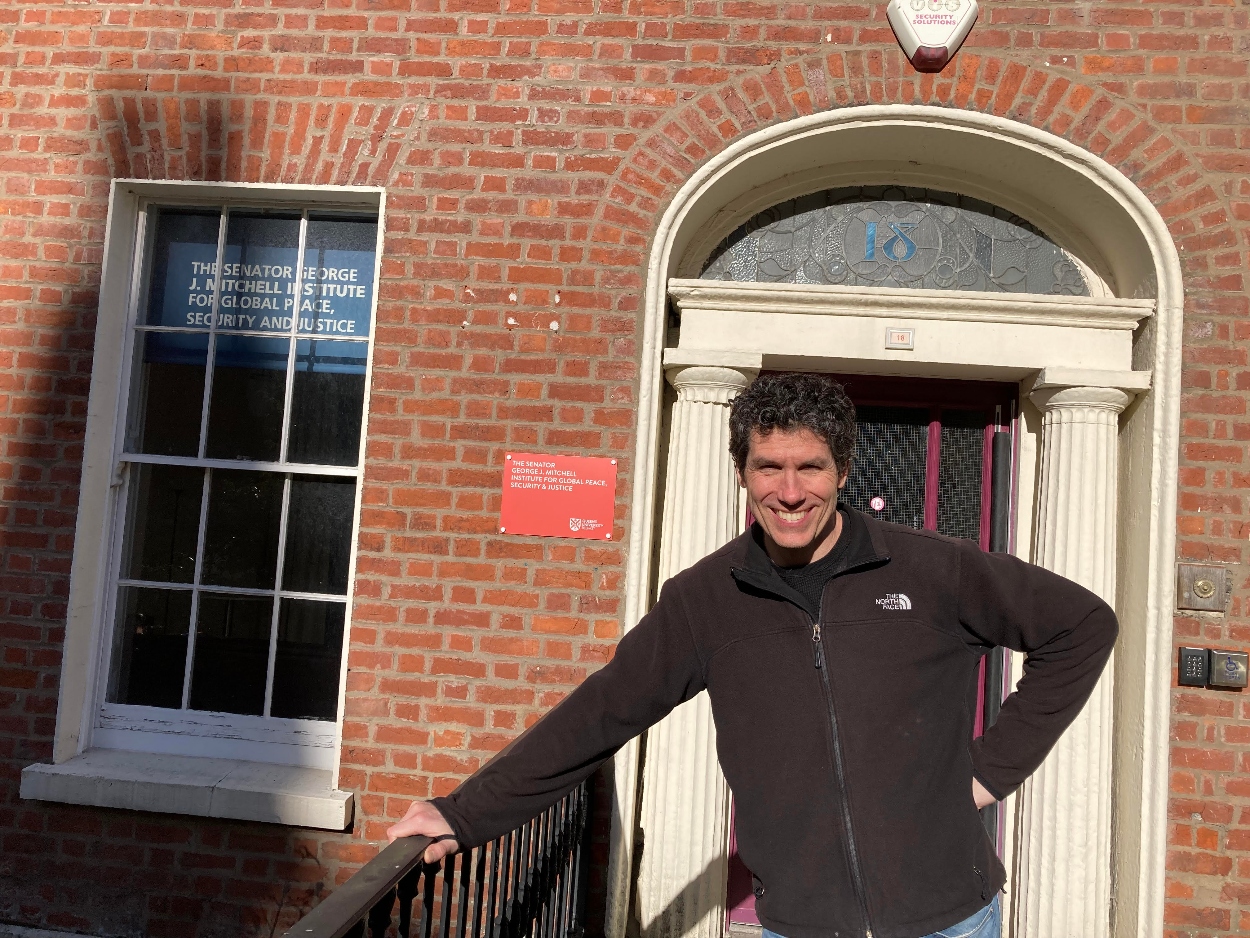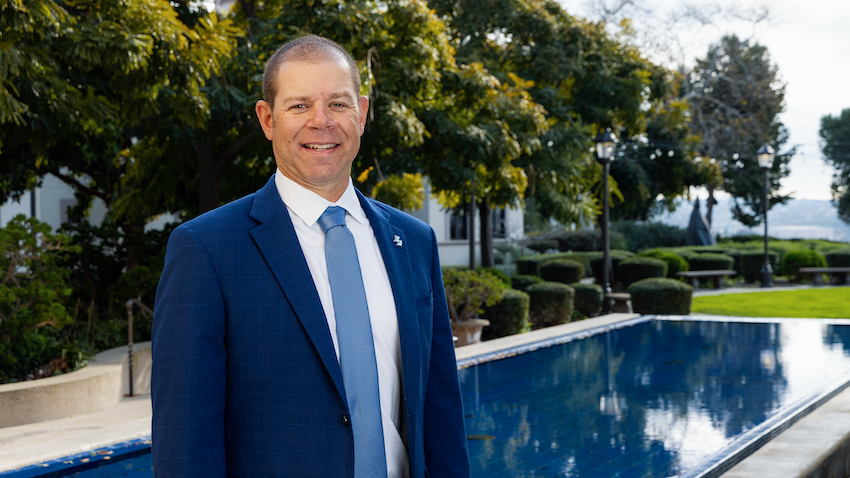Neu Graduates from Post at IPJ To Lead United Nations Team of Mediation Experts
Joyce Neu, founding executive director of the University of San Diego’s Joan B. Kroc Institute for Peace & Justice, has been called upon to lead a new “swat team” of United Nations mediators.
The United Nations recently announced formation of a Standby Team of Mediation Experts that will be called upon at a moment’s notice to demand peace talks around the world. The team is made of six recognized experts on key issues surrounding peace talks, “including how to rewrite constitutions to promote peace, find formulas for the sharing of wealth and power, promote justice and reconciliation in the wake of atrocities and transition former soldiers into the civilian life.”
“The wealth of knowledge and experience that Joyce has in the field, and her efforts to resolve conflict around the world are highly commendable,” said Father William Headley, C.S.Sp., dean of USD’s Joan B. Kroc School of Peace Studies. “I’ve been impressed with her work here at the Institute for Peace & Justice and look forward to witnessing her progress as head of this new team.”
Neu, who came to the Institute for Peace & Justice (IPJ) at USD in 2001, is a conflict resolution specialist with a background in scholarship and practice in international mediation and negotiation. She has conducted conflict assessments in dozens of countries, including Albania, Georgia, Latvia, Macedonia, Madagascar and Moldova, and has helped facilitate discussions between parties in conflict in Bosnia, Congo-Brazzaville, Côte d’Ivoire, Ethiopia, Mali, Sudan and Uganda.
“Joyce came with front line experience in peacemaking and built the institute that Joan Kroc envisioned - one which not only talked about peace, but went out into the world to lay the groundwork for peace,” said Dee Aker, IPJ deputy director. “The West Coast suddenly had a center that former presidents, military leaders, and international non-government organizations were willing to embrace as a place where they could share their ideas and challenges. Students were immediate beneficiaries as was San Diego. Joyce takes with her to this profoundly important new post the added awareness and support of women peacemakers from around the world who have been recognized by the IPJ as key to the hard work of making peace with justice.”
Prior to joining the IPJ, Neu worked alongside former United States President Jimmy Carter. In December 1994, she accompanied the former president to Bosnia where they obtained a four-month ceasefire. She also led a team from The Carter Center working on restoring Sudan – Uganda bilateral relations that culminated in a summit with the two heads of state, with President Carter serving as mediator, and the 1999 Nairobi Peace Agreement.
Her numerous contributions to the IPJ include formation of an international internship program that offers students from around the world an opportunity to learn how a nongovernmental educational institute works by working on projects with scholars and practitioners in the fields of human rights and conflict resolution. In 2005, she went before the U.S. Senate to brief legislators on the peace process in Uganda. Under Neu’s lead, the IPJ formed a relationship with international officials, Ugandan government and citizens of Northern Uganda to bring an end to the war between the government of Uganda and the Lord’s Resistance Army.
During the 2006-2007 academic year, Neu was a Jennings Randolph Senior Fellow at the U.S. Institute of Peace in Washington, D.C., where her research focused on the impact of International Criminal Court interventions on peace processes. She sits on the boards of Global Majority, the Joan B. Kroc Institute for International Peace Studies at the University of Notre Dame, Toda Institute for Global Peace and Policy Research and the Western Behavioral Sciences Leadership Council.
Neu is professor of practice in the Joan B. Kroc School of Peace Studies at USD and holds a Ph.D. and master’s degree in linguistics from the University of Southern California, as well as a bachelor in English and French from the University of Colorado. Neu was a Peace Corps volunteer in Senegal and a Fulbright professor in Poland.
About The University of San Diego
The Joan B. Kroc Institute for Peace & Justice is part of the Joan B. Kroc School of Peace Studies at the University of San Diego. The institute is dedicated to fostering peace, cultivating justice and creating a safer world through education, research, and peacemaking activities.
The University of San Diego is a Catholic institution of higher learning chartered in 1949; the school enrolls approximately 7,500 students and is known for its commitment to teaching, the liberal arts, the formation of values and community service. The inauguration of the Joan B. Kroc School of Peace Studies brings the university’s total number of schools and colleges to six. Other academic divisions include the College of Arts and Sciences and the schools of Business Administration, Law, Leadership and Education Sciences, and Nursing and Health Science.
####
About the University of San Diego
Strengthened by the Catholic intellectual tradition, we confront humanity’s challenges by fostering peace, working for justice and leading with love. With more than 8,000 students from 75 countries and 44 states, USD is the youngest independent institution on the U.S. News & World Report list of top 100 universities in the United States. USD’s eight academic divisions include the College of Arts and Sciences, the Knauss School of Business, the Shiley-Marcos School of Engineering, the School of Law, the School of Leadership and Education Sciences, the Hahn School of Nursing and Health Science, the Joan B. Kroc School of Peace Studies, and the Division of Professional and Continuing Education. In 2021, USD was named a “Laudato Si’ University” by the Vatican with a seven-year commitment to address humanity’s urgent challenges by working together to take care of our common home.



